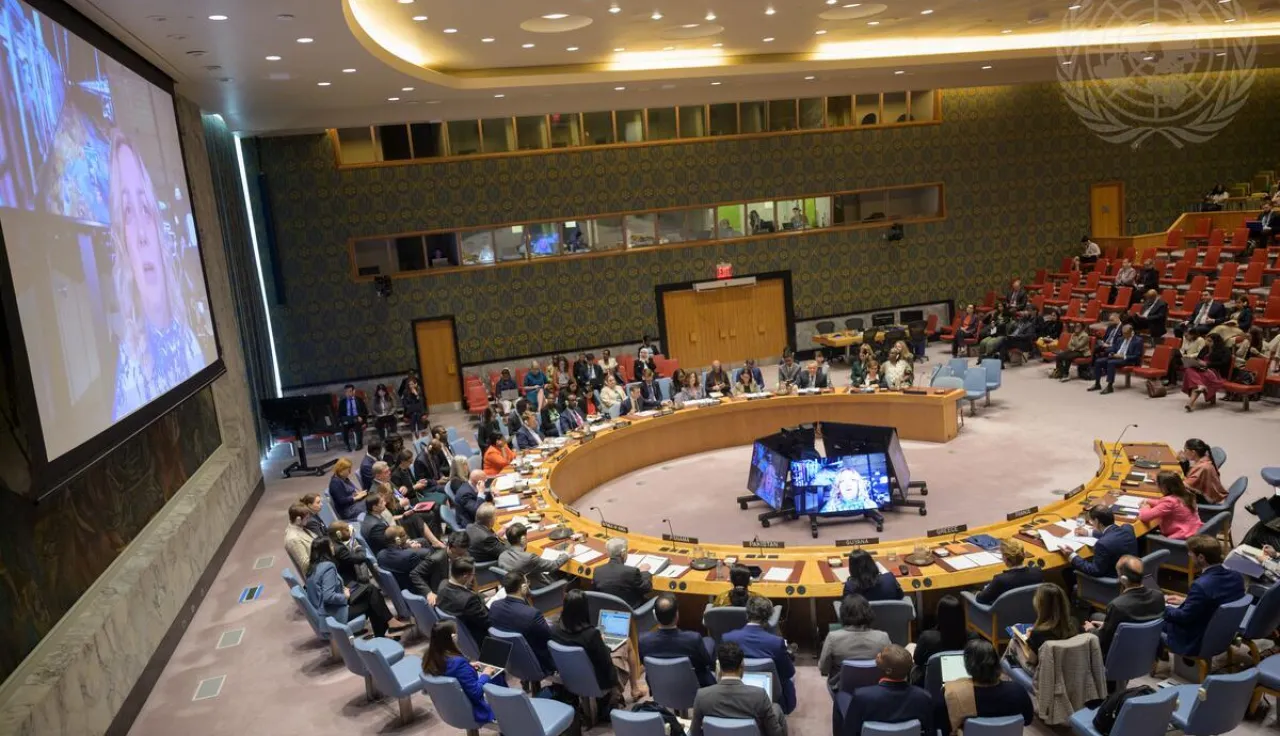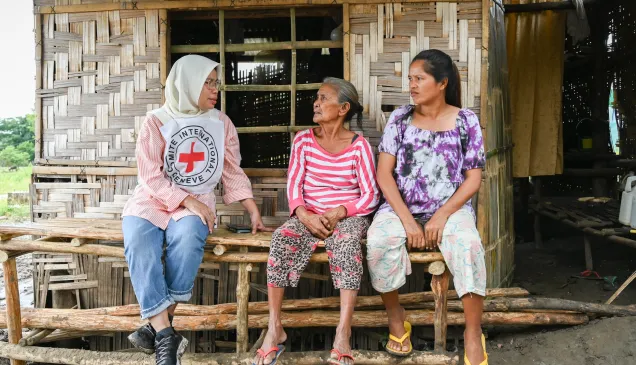Madame President, Excellencies,
This year’s 25th anniversary of the Women, Peace, and Security (WPS) agenda, and 30th anniversary of the Beijing Declaration and Platform for Action, mark important progress but also remind us how much remains to be done.
Armed conflict is the daily reality for more than 600 million women and girls today; a staggering 1 in 7 globally, and 50% more than a decade ago.
The specific perils they face are rising dramatically, including the prevalence of sexual violence.
The ICRC observes that gender inequality and its enabler, gender-based discrimination, drive much civilian harm in conflicts where we are present.
Yet since 2020, references to women’s rights in Security Council resolutions have fallen by 21%. As abuses against women and girls intensify, this Council must rise to meet the gravity of violations on the ground.
The link between the WPS agenda and international humanitarian law (IHL) is both clear and necessary to fulfil their shared object and purpose: the protection of all victims of armed conflict.
Ten Security Council resolutions on WPS anchor IHL by calling on States to respect it, to prevent and respond to sexual violence, and to prosecute war crimes.
Nearly half of States’ national action plans on WPS also reference IHL.
Madame President,
What the combined approach of WPS and IHL has taught us these past 25 years is simple: Full compliance with IHL requires that women, men, girls and boys, are equally protected, whether they are civilians, combatants, wounded or prisoners of war.
Rules designed to protect all victims of armed conflict – for example on evacuations, healthcare, detention – are ineffective if they are implemented in a way that ignores gender, age and other differences.
This year, Spain, together with the ICRC, organized a retreat for Security Council members on Women, Peace and Security. A report and recommendations will be distributed.
The ICRC has also worked with military practitioners from around the world to develop operational guidance for armed forces and lawmakers.
This includes, for example, practical guidance for military commanders to integrate a gender perspective into planning and operations and train their forces to recognize and mitigate gender-specific vulnerabilities.
It includes specific guidance for lawmakers to ensure that national legislation reflects the clear prohibition of sexual violence under IHL and provides for accountability and suspending arms transfers where there is a risk of facilitating IHL violations.
Humanitarian actors and donors can also do their part. Humanitarian activities must be impartial, but if they do not consider gender-specific risks and gender-specific needs, they can end up amplifying discrimination and inequalities with detrimental impacts for women and girls.
We need to ensure we design and deliver aid in a way that empowers women and ensures their needs are addressed, rather than sidelines them.
On this anniversary, the task before us is clear: to summon the political will and dedicate the necessary resources to hold the line on WPS, and to uphold obligations under IHL.
Let us take positive steps to shift the tide so that future generations of women and girls can not only survive war, but shape peace.
Thank you.




